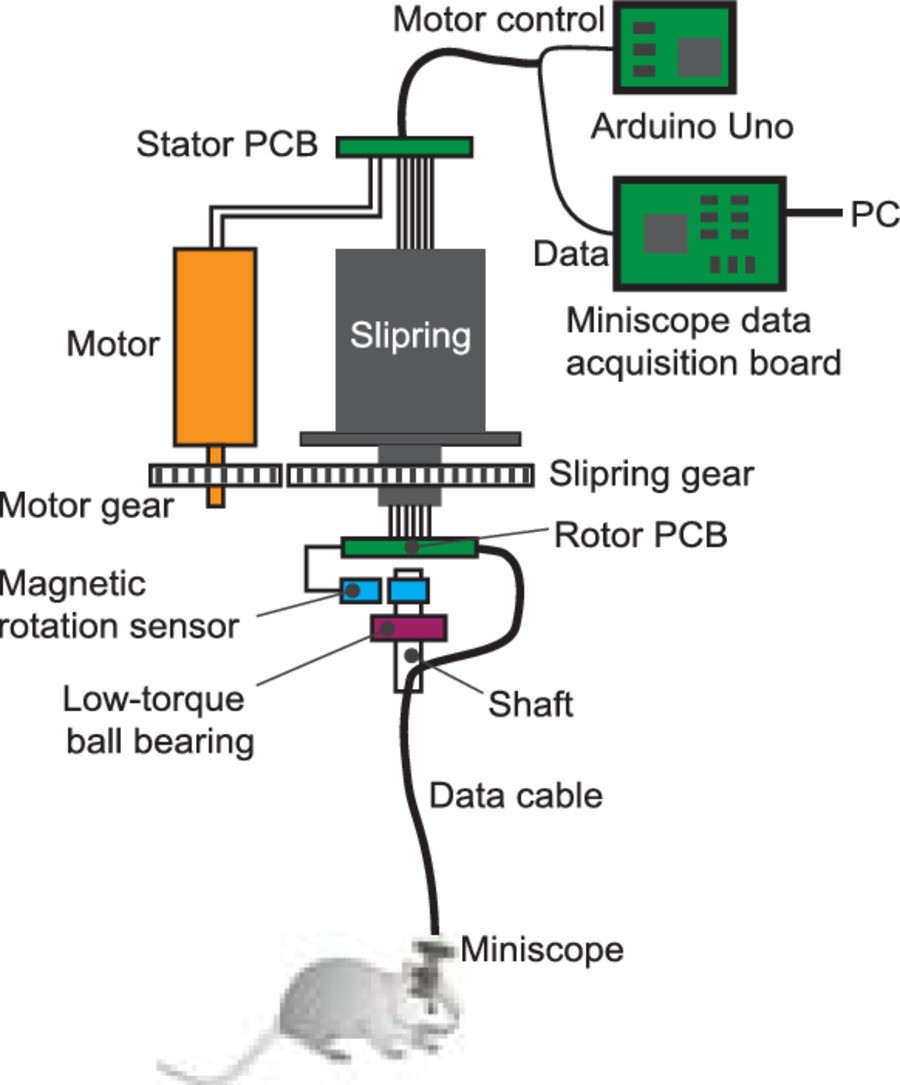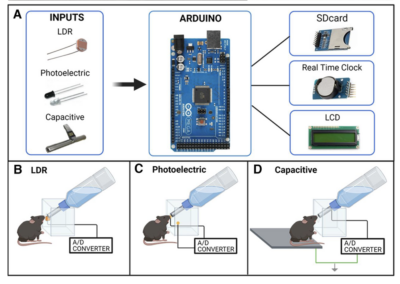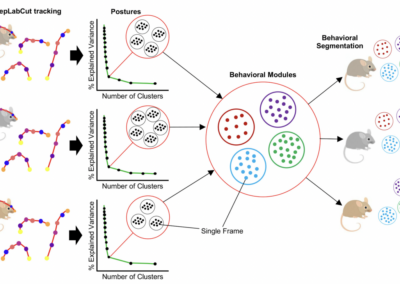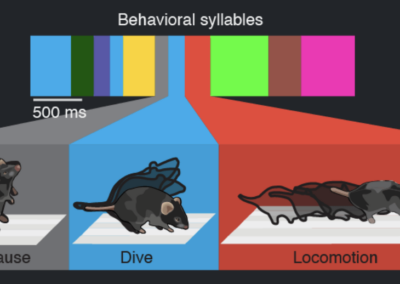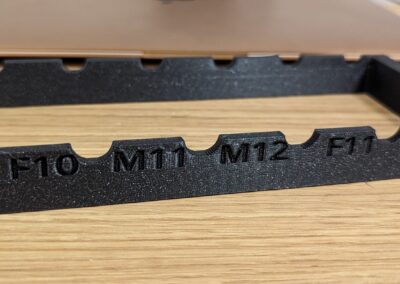An open source motorized swivel for in vivo neural and behavioral recordings
Giovanni Barbera and colleagues have created a versatile, 3D-printed, motorized commutator for neural recordings of small animals in vivo.
Commutators are important components for managing the twisting of cables during in vivo neural recordings such as electrophysiology, calcium imaging, and optogenetics. Motorized solutions are especially useful as they track rotation and eliminate torque on the animal’s head when turning during awake behaving protocols. Current commercial solutions have proprietary designs that often limit their use to particular hardware and can be prohibitively expensive. The proposed motorized swivel is an Arduino operated, hall sensor-based system that is composed of 3D printed and common electromechanical parts, thereby keeping cost low while keeping customizability high. Additionally, the device is compatible with any custom or commercial acquisition hardware using up to 12 lines and includes two LVDS lines that are commonly used in miniature imaging systems.
The proposed commutator is an affordable, versatile way to manage wire tangling and turning-induced torque during in vivo neural and behavioral recordings in small animals.
This research tool was created by your colleagues. Please acknowledge the Principal Investigator, cite the article in which the tool was described, and include an RRID in the Materials and Methods of your future publications. RRID:SCR_021482
Read the Paper!
Read more about the device in their MethodsX paper!
OSF Page
Get access to necessary files, designs, and code from their OSF page!

